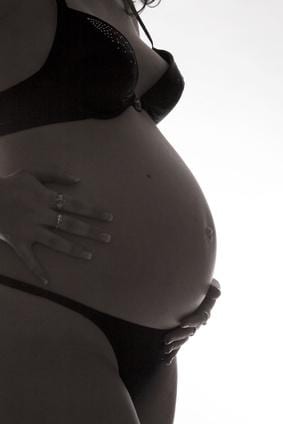Many women look forward to not having their periods during pregnancy and in the months after giving birth. Unfortunately, some women do experience something period-like. Naturally, this can cause concern about the baby’s welfare, but in most cases, the bleeding is normal and not a problem. Know what to expect, and you’ll be able to ease your worries.
Identification
You get a period about 14 days after ovulation when the egg is not fertilized or does not implant in the uterus. Your period is the uterus shedding the lining that it built-up to prepare for a baby. Once you become pregnant, your body stops ovulating and you no longer shed the lining of the uterus. This means that any vaginal bleeding is not technically a “period,” though it may look and feel like one, even including premenstrual symptoms, like cramping.
Implantation Bleeding
As the fertilized egg implants in the uterus, some women experience a mild bleeding. Typically, this is a very light bleeding, similar to what you might experience at the beginning or end of your normal period. This often occurs around the time of your cycle that you would get a period, which leads some women to mistake this bleeding for a period.
Early Pregnancy Bleeding
Aside from the implantation bleeding, some women also experience intermittent bleeding in the first few months of a pregnancy, referred to as “early pregnancy bleeding.” This most likely occurs in women who became pregnant while taking hormonal birth control pills, especially if they continue taking the pills without realizing that they’re pregnant. If your period seems exceptionally light when taking birth control pills, it’s smart to take a pregnancy test to determine if you are pregnant.
Problems With Early Pregnancy Bleeding
Some women mistake implantation bleeding or early pregnancy bleeding as a period, which can lead to a mistake in determining the baby’s due date. Doctors determine the baby’s due date based on the last menstrual cycle and estimated day of conception. If you mistake early implantation bleeding for a period, the due date could be off by a month or more. This affects certain prenatal tests, which your doctor will order at a specific gestational age. Early in your pregnancy, the doctor should order an ultrasound to determine your baby’s true due date.
When to Worry
If the bleeding is in conjunction with severe cramping and if the blood is bright red, with a heavy flow and clots, you should see your doctor immediately, as this could be a miscarriage.





